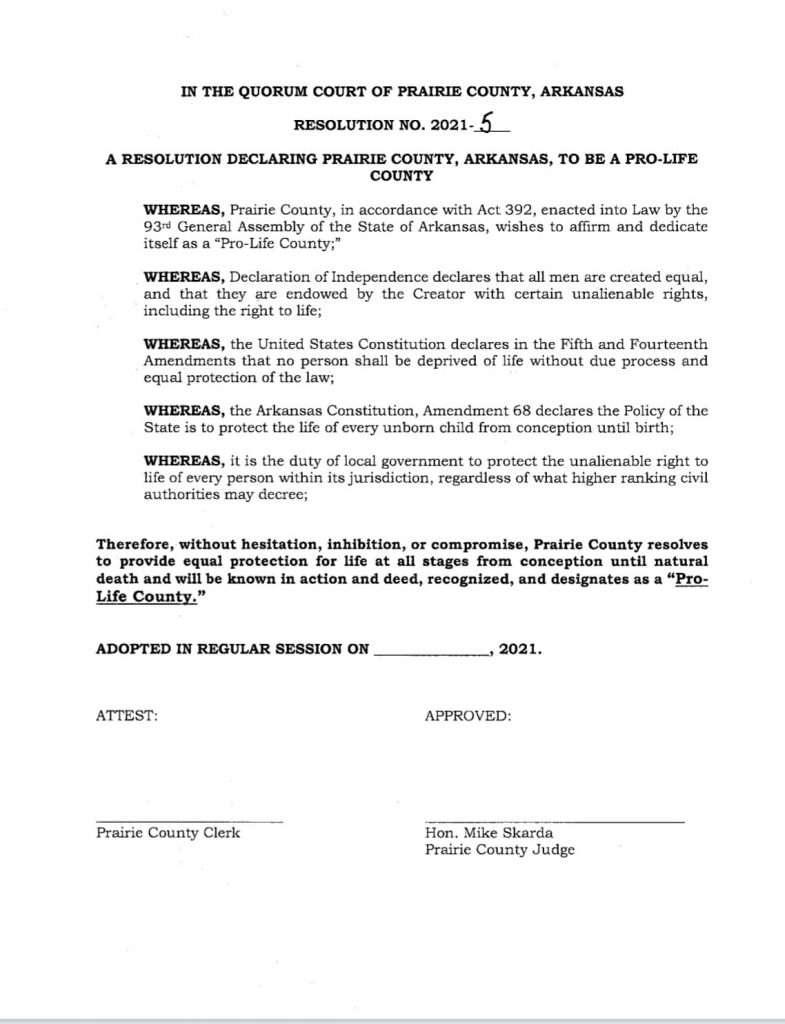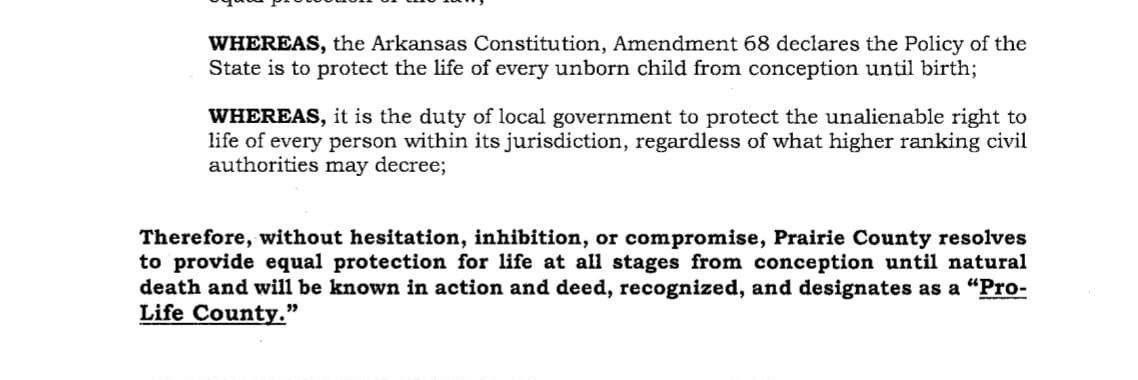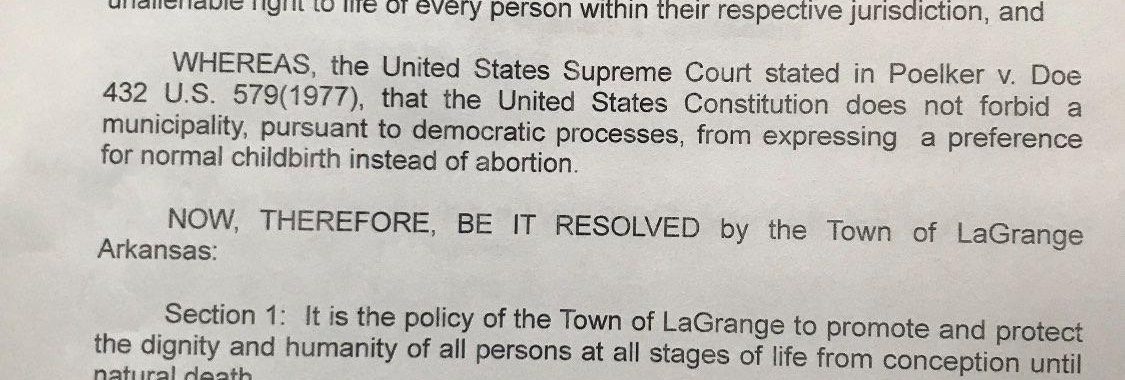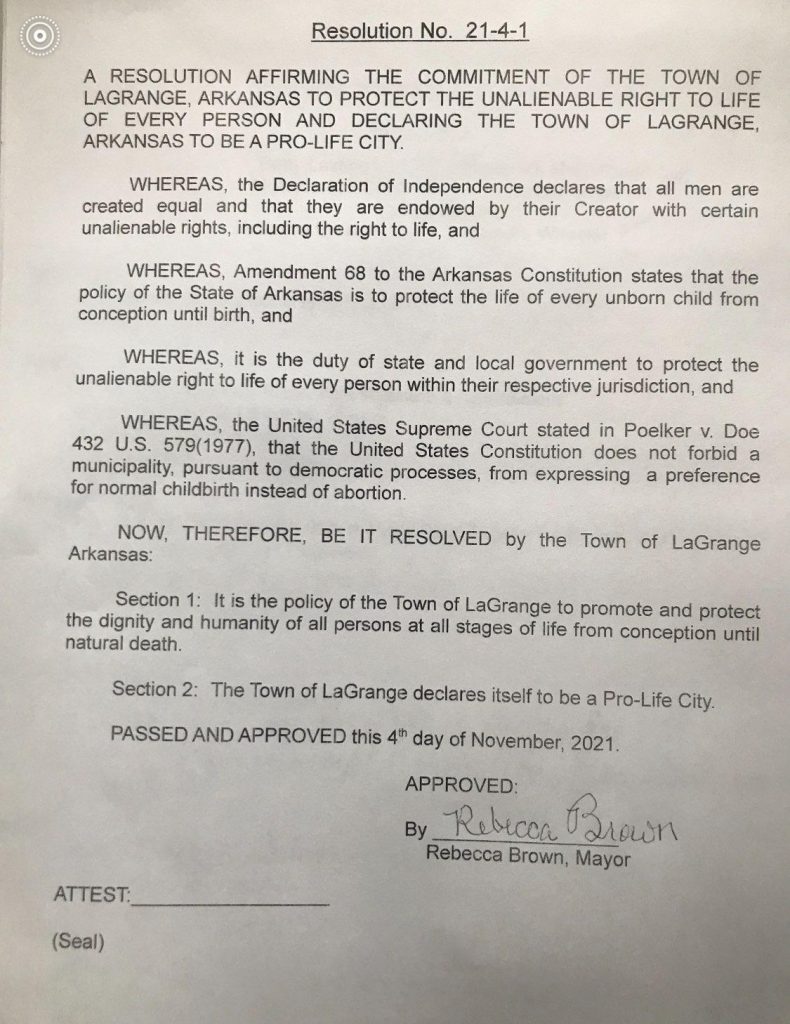The Arkansas Baptist State Convention adopted a strong, pro-life resolution at its recent meeting in Cabot.
Whereas, from the moment of fertilization, all humans are created in God’s image by, through and for Jesus to the glory of God, and all souls belonging to him (Genesis 1:27, 4:1, 21:2; Isaiah 7:14; Colossians 1:16; Romans 11:36; Ezekiel 18:4); and
Whereas, as God’s image-bearers all humans both display His divine worth, power, and attributes, and possess the same objective worth before God, not varying on the basis of incidental characters such ethnicity, age, size, means of conception, mental development, physical development, gender, potential, or contribution to society (Romans 1:19-20; Genesis 1:27, 9:6; Matthew 18:6); and
Whereas, to murder any preborn image-bearer is a sin, violating both the natural law of retributive justice as set forth in the Noahic covenant, as well as the sixth commandment forbidding murder, and as such, is ultimately an assault on God’s image, seeking to usurp God’s sovereignty as Creator (Genesis 9:5-6; Exodus 20:13; Proverbs 6:17); and
Whereas, God’s Word clearly declares that all human life is a sacred gift and that His Law is supreme over man’s life and man’s law (Psalm 127:3-5, 139:13-16: Romans 2:15-16; Acts 10:42, 17:31; 1 Corinthians 4:5): and
Whereas, God commands His own people to “rescue those who are being taken away to death” and holds them responsible and without excuse when they fail to do so (Proverbs 24:11-12); and
Whereas, in 1973, the Supreme Court of the United States rendered an iniquitous decision on Roe v. Wade, and in doing so deprive the innocent of their rights and usurped God, who sovereignly ordained their authority (Isaiah 5:23, 10:1-2; Psalm 2; Matthew 22:21; John 19:11; Acts 4:19, 5:29; Romans 13:1); and
Whereas, in the Roe v. Wade decision, the Supreme Court of the United States subverted the U.S. Constitution namely, the Preamble, as well as the Fifth and Fourteenth Amendments without any legal authority (Article 6, Clause 2 “Supremacy Clause”); and
Whereas, our confessional statement, The Baptist Faith and Message 2000, according to Article XV, affirms that children “from the moment of conception, are a blessing and heritage from the Lord,” and further affirms that Southern Baptists are mandated by Scripture to “speak on behalf of the unborn and contend for the sanctity of all human life from conception to natural death,” therefore, be it
Resolved, that we, the messengers to the Arkansas Baptist State Convention, meeting at First Baptist Church, Cabot, Arkansas, October 26-27, 2021, do state unequivocally that abortion without justification is murder and we reject any position that allows for any exceptions, other than one necessary to save the life of the mother in a genuine life-threatening health emergency, to the legal protection of our preborn neighbors compromises God’s holy standard of justice, or promotes any God-hating partiality (Psalm 82:1-4, 94:6; Isaiah 10:1-2; Proverbs 24:11); and, be it further
Resolved, that because abolishing abortion is a gospel issue, we will call upon governing authorities at all levels to continue to faithfully execute their responsibilities as God’s servants of justice, and working with all urgency to enact legislation using the full weight of their office to interpose on behalf of the preborn, abolishing abortion immediately, without compromise, as was done in the 2021 session of the Arkansas General Assembly where fourteen pro-life laws were enacted, one of which makes all abortions illegal in the state of Arkansas, with the only exception being when the mother’s life is in jeopardy due to a genuinely serious life-threatening health condition (Mark 6:18; Matthew 28-18-20; Romans 13:4-6); and be it finally
Resolved, that as Arkansas Baptists, we will engage, with God’s help, in establishing equal justice and protection for the preborn according to the authority of God’s Word as well as local and federal law and call upon pastors and entity leaders to use their God-given gifts of preaching, teaching, and leading with one unified, principled, prophetic voice to abolish abortion.
The Southern Baptist Convention is the largest denomination in Arkansas, and it has opposed abortion in Arkansas for many years.
It’s great to see the Arkansas Southern Baptist Convention continuing to take a decidedly pro-life position against abortion.






